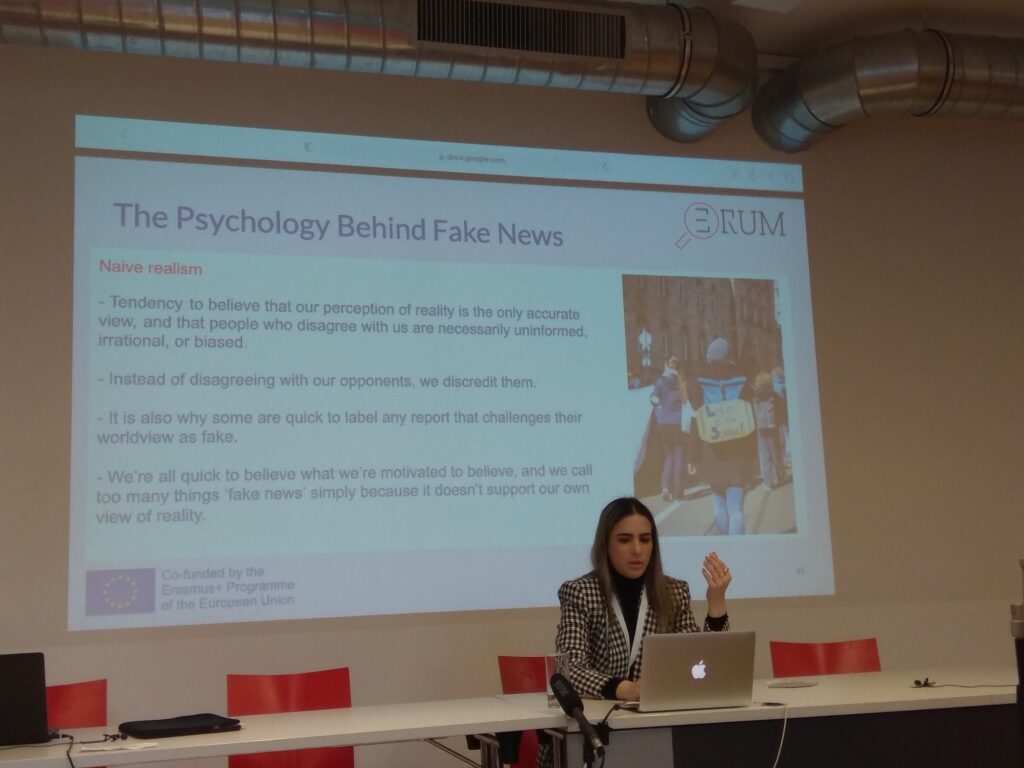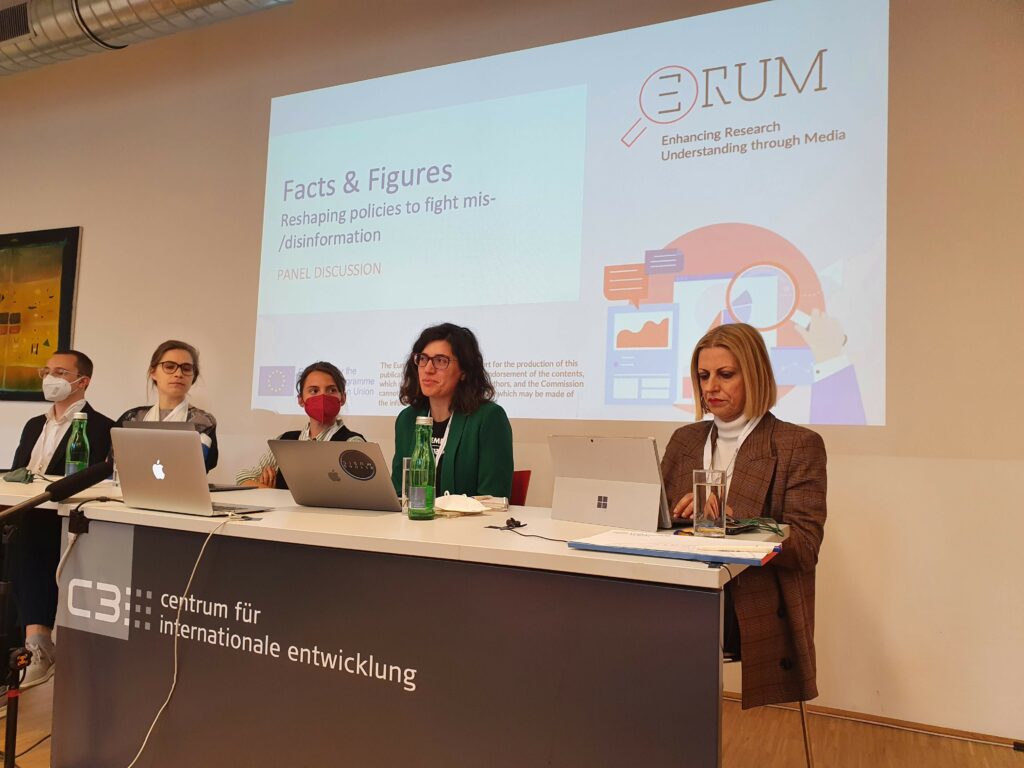On April 28th the ERUM partners – under the lead of the University of Vienna – hosted the third ERUM conference “Facts & Figures | Evidence-based Information in Contemporary Societies: The Role of Academia and the Media” to present and discuss the project’s outcomes. An interested audience from higher education and media institutions as well as (non)governmental bodies was able to participate in Vienna as well as online.
How To: Enhancing Media and Information Literacy
In the morning, participants had the chance to get an introduction to the ERUM project and find out more about the learning material that was developed in the course of the project. The material will be available to the public as Open Educational Resources by the end of May and addresses different aspects related to the fostering of higher education students´ media and information literacy. The learning modules build upon the previous outcomes of the project and cover a broad range of topics suited for various fields of study. To grasp the variety of topics, participants were able to participate in workshops hosted by consortium members from Cyprus University of Technology, Vytautas Magnus University and the University of Saint-Quentin-en-Yvelines, held both on- and offline. The workshops addressed issues such as the psychology behind “fake news”, visual analysis and media discourses about climate change.
Science & Media Revisited: The case of COVID-19
In the afternoon, the consortium highlighted the project’s relevance in connection to the pandemic that has accompanied ERUM partners almost throughout the entire project. Professor Veglis from Aristotle University of Thessaloniki provided a brief insight into the case study on COVID-19 reporting in Greek media in the beginning of 2020.

This was contrasted with inputs from two guest speakers. Assistant professor Fabiana Zollo from the Ca’Foscari University of Venice, who joined online, reviewed the COVID-19 infodemic as a (science) communication challenge, while the Austrian journalist Katharina Kropshofer inquired whether all journalists have become science writers during the pandemic. New avenues for collaboration between research and media stakeholders were explored. Amongst others, it was debated whether journalists would require to enhance their media and information as well as science literacy and how these skills could be fostered within higher education. Additionally, science communication strategies adopted by researchers were illuminated and future perspectives such as a stronger involvement on popular social media channels or a focus on science communication within different degree courses discussed.

Reshaping Policies to fight Mis/Disinformation
The event was concluded with a panel discussion hosted by Debora Lucque from the European University Foundation. The discussion was kicked off with a participative survey allowing the audience to reflect upon their own media and information literacy skills. This was followed by a lightning talk by Julia Haas from the OSCE Office of the Representative on Freedom of the Media.
In this talk, Julia Haas elaborated on the fight of mis-/disinformation from a policy perspective with a focus on internet governance and digital participation. This talk built the basis for further discussion with the other panellists, namely Katharina Kropshofer and assistant professor Ioanna Kostarella (member of the ERUM consortium). Based on the policy recommendations that the ERUM consortium developed to increase the quality of information in today’s fast-paced societies, the panellists together with the audience discussed interventions on different levels to enhance media and information literacy, increase the collaboration between the media and academia as well as support independent journalism and regulate online environments.
All in all, the conference allowed the ERUM partners to present their findings and discuss them with the audience and experts involved. The results of these discussions will be included in the final version of the policy recommendations that are to be published soon.